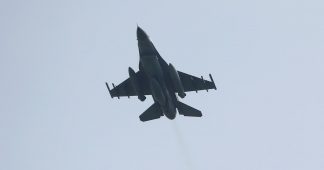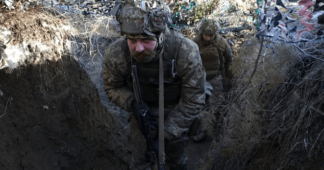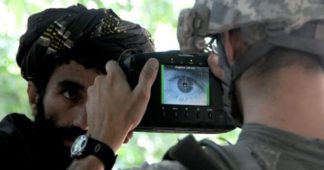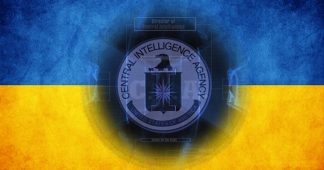By Nick Turse, Alice Speri
July 1 2022
Small teams of U.S. Special Operations forces are involved in a low-profile proxy war program on a far greater scale than previously known, according to exclusive documents and interviews with more than a dozen current and former government officials.
While The Intercept and other outlets have previously reported on the Pentagon’s use of the secretive 127e authority in multiple African countries, a new document obtained through the Freedom of Information Act offers the first official confirmation that at least 14 127e programs were also active in the greater Middle East and the Asia-Pacific region as recently as 2020. In total, between 2017 and 2020, U.S. commandos conducted at least 23 separate 127e programs across the world.
Separately, Joseph Votel, a retired four-star Army general who headed both Special Operations Command and Central Command, which oversees U.S. military efforts in the Middle East, confirmed the existence of previously unrevealed 127e “counterterrorism” efforts in Egypt, Lebanon, Syria, and Yemen.
Another former senior defense official, who requested anonymity to discuss a classified program, confirmed that an earlier version of the 127e program had also been in place in Iraq. A 127e program in Tunisia, code-named Obsidian Tower, which has never been acknowledged by the Pentagon or previously identified as a use of the 127e authority, resulted in combat by U.S. forces alongside local surrogates in 2017, according to another set of documents obtained by The Intercept. A third document, a secret memo that was redacted and declassified for release to The Intercept, sheds light on hallmarks of the program, including use of the authority to provide access to areas of the world otherwise inaccessible even to the most elite U.S. troops.
The documents and interviews provide the most detailed picture yet of an obscure funding authority that allows American commandos to conduct counterterrorism operations “by, with, and through” foreign and irregular partner forces around the world. Basic information about these missions — where they are conducted, their frequency and targets, and the foreign forces the U.S. relies on to carry them out — are unknown even to most members of relevant congressional committees and key State Department personnel.
Through 127e, the U.S. arms, trains, and provides intelligence to foreign forces. But unlike traditional foreign assistance programs, which are primarily intended to build local capacity, 127e partners are then dispatched on U.S.-directed missions, targeting U.S. enemies to achieve U.S. aims. “The foreign participants in a 127-echo program are filling gaps that we don’t have enough Americans to fill,” a former senior defense official involved with the program told The Intercept. “If someone were to call a 127-echo program a proxy operation, it would be hard to argue with them.”
Retired generals with intimate knowledge of the 127e program — known in military parlance as “127-echo” — say that it is extremely effective in targeting militant groups while reducing risk to U.S. forces. But experts told The Intercept that use of the little-known authority raises grave accountability and oversight concerns and potentially violates the U.S. Constitution.
One of the documents obtained by The Intercept puts the cost of 127e operations between 2017 and 2020 at $310 million, a fraction of U.S. military spending over that time period but a significant increase from the $25 million budget allocated to the program when it was first authorized, under a different name, in 2005.
While critics contend that, due to a lack of oversight, 127e programs risk involving the United States in human rights abuses and entangling the U.S. in foreign conflicts unbeknownst to Congress and the American people, former commanders say the 127e authority is crucial to combating terrorism.
“I think this is an invaluable authority,” Votel told The Intercept. “It provides the ability to pursue U.S. counterterrorism objectives with local forces that can be tailored to the unique circumstances of the specific area of operations.”
The 127e authority first faced significant scrutiny after four U.S. soldiers were killed by Islamic State militants during a 2017 ambush in Niger and several high-ranking senators claimed to know little about U.S. operations there. Previous reporting, by The Intercept and others, has documented 127e efforts in multiple African countries, including a partnership with a notoriously abusive unit of the Cameroonian military that continued long after its members were connected to mass atrocities.
For more than a year, the White House has failed to provide The Intercept with substantive comment about operations by U.S. commandos outside conventional war zones and specifically failed to address the use of 127e programs. Asked for a general comment about the utility of the 127e authority and its role in the administration’s counterterrorism strategy, Patrick Evans, a National Security Council spokesperson, replied: “These all fall under the Department of Defense.” The Pentagon and Special Operations Command refuse to comment on the 127e authority. “We do not provide information about 127e programs because they are classified,” SOCOM spokesperson Ken McGraw told The Intercept.
Critics of 127e warn that in addition to the risk of unanticipated military escalation and the potential costs of engaging in up to a dozen conflicts around the world, some operations may amount to an unlawful use of force. Because most members of Congress — including those directly responsible for overseeing foreign affairs — have no input and little visibility into where and how the programs are run, 127e-related hostilities can lack the congressional authorization required by the U.S. Constitution, argued Katherine Ebright, counsel at the Brennan Center for Justice.
“There’s reason to suspect the Department of Defense has used 127e partners to engage in combat beyond the scope of any authorization for use of military force or permissible self-defense,” Ebright told The Intercept, noting substantial confusion at the Pentagon and in Congress over a stipulation that 127e programs support only authorized ongoing military operations. “That kind of unauthorized use of force, even through partners rather than U.S. soldiers themselves, would contravene constitutional principles.”
Global Proxy War
The origins of the 127e program can be traced back to the earliest days of the U.S. war in Afghanistan, as commandos and CIA personnel sought to support the Afghan Northern Alliance in its fight against the Taliban. Army Special Operations Command soon realized that it lacked the authority to provide direct payments to its new proxies and was forced to rely on CIA funding. This prompted a broader push by SOCOM to secure the ability to support foreign forces in so-called missions, a military corollary to the CIA’s use of militia surrogates. First known as Section 1208, the authority was also deployed in the early years of the Iraq invasion, according to a former senior defense official. It was ultimately enshrined in U.S. law under U.S.C. Title 10 § 127e.
127e is one of several virtually unknown authorities granted to the Defense Department by Congress over the last two decades that allow U.S. commandos to conduct operations on the fringes of war and with minimal outside oversight. While 127e focuses on “counterterrorism,” other authorities allow elite forces — Navy SEALs, Army Green Berets, and Marine Raiders among them — to conduct clandestine intelligence and counterintelligence operations or assist foreign forces in irregular warfare, primarily in the context of so-called great power competition. In April, top Special Operations officials unveiled a new “Vision and Strategy” framework that appears to endorse continued reliance on the 127e concept by leveraging “burden sharing partnerships to achieve objectives within an acceptable level of risk.”
Gen. Richard D. Clarke, the current Special Operations commander, testified before Congress in 2019 that 127e programs “directly resulted in the capture or killing of thousands of terrorists, disrupted terrorist networks and activities, and denied terrorists operating space across a wide range of operating environments, at a fraction of the cost of other programs.”
Clarke’s claims cannot be verified. A SOCOM spokesperson told The Intercept that the command does not have figures on those captured or killed during 127e missions. It is also not known how many foreign forces and civilians have been killed in these operations, but a former defense official confirmed to The Intercept that there have been U.S. casualties, even as U.S. troops are traditionally expected to stay behind “last cover and concealment” during a foreign partner’s operations.
The documents obtained by The Intercept tout the importance of the authority, particularly in providing U.S. special operators a way into difficult-to-access areas. According to a memo, one 127e program provided “the only human physical access to areas,” with local partners “focused on finding, fixing, and finishing” enemy forces. Another 127e program targeting Al Qaeda and its affiliates similarly allowed commandos to project “combat power into previously-inaccessible VEO [violent extremist organization] safe havens.”
Some documents obtained via FOIA are so heavily redacted that it is difficult to identify the countries where the programs took place and the forces with which the U.S. partnered. The Intercept previously identified the BIR, or Rapid Intervention Battalion, as the notorious Cameroonian military unit with which the U.S. ran a 127e program. The Intercept has now identified another previously unknown partnership with the G2 Strike Force, or G2SF, an elite special unit of the Lebanese military with which the U.S. partnered to target ISIS and Al Qaeda affiliates in Lebanon.
Votel confirmed that the 127e in Lebanon was code-named Lion Hunter. He also acknowledged previously unknown 127e programs in Syria; Yemen, known as Yukon Hunter; and Egypt, code-named Enigma Hunter, where U.S. Special Operations forces partnered with the Egyptian military to target ISIS militants in the Sinai Peninsula. He said that the chief of the Egyptian military intelligence service provided “strong support” for Enigma Hunter and that American troops did not accompany their local partners into combat there, as is common in other African countries.
The U.S. has a long history of assistance to both the Egyptian and Lebanese militaries, but the use of Egyptian and Lebanese forces as proxies for U.S. counterterrorism missions marked a significant development in those relationships, several experts noted.
Two experts on Lebanese security noted that the G2SF is an elite, secretive unit mostly tasked with intelligence work and that it was not surprising that it was the unit chosen for the 127e program by U.S. Special Operations, with which it already enjoyed a strong relationship. One noted that unlike other elements of the country’s security forces, the unit was “far less politicized.”
The situation is more complex in Egypt, where the military has for decades relied on billions of dollars in U.S. security assistance but resisted U.S. efforts to track how that assistance is used.
While Sinai is subject to a near-total media blackout, human rights groups have documented widespread abuses by the Egyptian military there, including “arbitrary arrests, forced disappearances, torture, extrajudicial killings, and possibly unlawful air and ground attacks against civilians.”
“There are legitimate issues with the U.S. partnering with some units of the Egyptian military,” said Seth Binder, director of advocacy at the Project on Middle East Democracy. “There has been great documentation, by Amnesty and Human Rights Watch, of numerous human rights abuses in the Sinai by the Egyptian military. Are these the same units we’re partnering with to carry out operations? That’s a real concern.”
The Egyptian Embassy in the United States did not respond to a request for comment, but in a joint statement last fall, U.S. and Egyptian officials committed to “discussing best practices in reducing civilian harm in military operations” — a tacit admission that civilian harm remained an issue. Requests for interviews with the embassies of Iraq, Tunisia, and Yemen, as well as Lebanon’s Ministry of Defense, went unanswered.
No Vetting, No Oversight
While the documents obtained by The Intercept offer clues about the scope and contours of the 127e program, much remains unknown to both the public and members of Congress. Relevant reports required by law are classified at a level that prevents most congressional staffers from accessing them. A government official familiar with the program, who requested anonymity to discuss it, estimated that only a handful of people on Congress’s armed services and intelligence committees read such reports. Congressional foreign affairs and relations committees — even though they have primary responsibility for deciding where the U.S. is at war and can use force — do not receive them. And most congressional representatives and staff with clearance to access the reports do not know to ask for them. “It’s true that any member of Congress could read any of these reports, but I mean, they don’t even know they exist,” the government official added. “It was designed to prevent oversight.”
But it is not just Congress that’s largely kept in the dark about the program: Officials at the State Department with the relevant expertise are also often unaware. While 127e requires signoff by the chief of mission in the country where the program is carried out, detailed information is rarely shared by those diplomats with officials in Washington.
The lack of oversight across levels of the U.S. government is in part the result of the extreme secrecy with which defense officials have shielded their authority over the program — and of the scant pushback they have faced. “It’s State not knowing what they don’t know, so they don’t even know to ask. It’s the ambassadors being sort of wowed by these four-star generals who come in and say, ‘If you don’t let us do this, everyone’s going to die,’” the government official said. “DOD views this as a small, tiny program that doesn’t have foreign policy implications, so, ‘Let’s just do it. The less people get in our way, the easier.’”
Sarah Harrison, a senior analyst at the International Crisis Group and formerly associate general counsel at the Defense Department’s Office of General Counsel, International Affairs, echoed that assessment. “HASC and SASC appear opposed to increasing oversight of 127-echo. They are not inclined to change the statute to strengthen State’s oversight, nor are they adequately sharing documents related to the program with personal [congressional] staff,” she said, using the acronyms of the House Armed Services Committee and the Senate Armed Services Committee. “This may seem like an arcane, bureaucratic issue, but it really matters for oversight of the 127-echo program and all other programs that are run in secret.”
Those programs include an authority, known as Section 1202, that first appeared in the 2018 National Defense Authorization Act and provides “support to foreign forces, irregular forces, groups, or individuals” that are taking part in irregular warfare and are explicitly focused on so-called near-peer competitors. Congress has also authorized the secretary of defense to “expend up to $15,000,000 in any fiscal year for clandestine activities for any purpose the Secretary determines to be proper for preparation of the environment for operations of a confidential nature” under 10 USC § 127f, or “127 foxtrot.” Section 1057 authority similarly allows for intelligence and counterintelligence activities in response to threats of a “confidential, extraordinary, or emergency nature.”
“This has been sort of the story for a lot of these DOD-run programs,” said Stephen Semler, co-founder of the Security Policy Reform Institute, a grassroots-funded U.S. foreign policy think tank. “The Special Operations community likes autonomy a lot. They don’t like going through bureaucracy, so they always invent authorities, trying to find ways around having their operations delayed for any reason.”
“The problem is this stuff is so normalized,” he added. “There should be more attention paid to these train-and-equip authorities, whether it’s special forces or DOD regular, because it’s really kind of a PR-friendly way to sell endless war.”
We remind our readers that publication of articles on our site does not mean that we agree with what is written. Our policy is to publish anything which we consider of interest, so as to assist our readers in forming their opinions. Sometimes we even publish articles with which we totally disagree, since we believe it is important for our readers to be informed on as wide a spectrum of views as possible.











